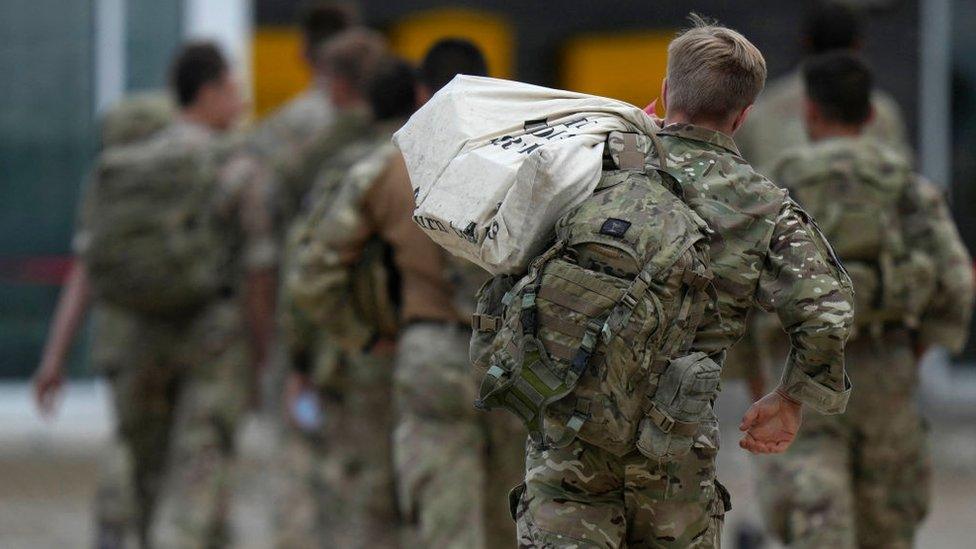9/11: How events 20 years ago changed Afghanistan forever
- Published
- comments
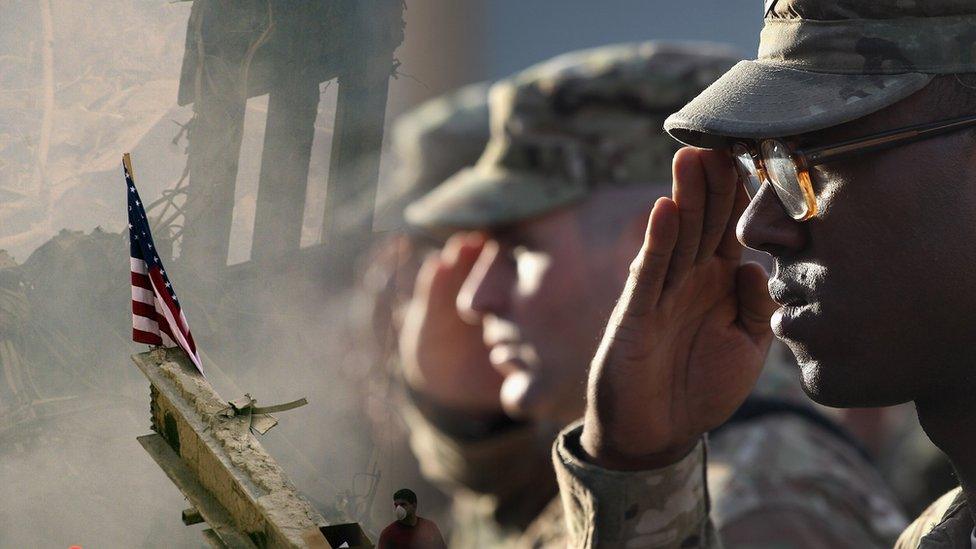
In 2001 a terrorist attack in the United States led to America, Britain and other countries invading Afghanistan.
The country's rulers, the Taliban were removed from power and a new government was formed in the country.
Now after 20 years of conflict, British and American troops have left Afghanistan and the Taliban has retaken control.
Many Afghans are worried about what life under Taliban will mean and thousands have tried to escape.
Before leaving, UK troops evacuated 15,000 people - including over two thousand children from the country.
But how did the war begin, what was Britain's role and why did it last for 20 years?
It's time to end America's longest war; it's time for American troops to come home.
September 11 2001
Animation detailing the events of September 11, 2001
On the morning of September 11 2001, as people arrived for work and tourists gathered to see the famous sights in New York City, Islamist extremists took over planes and deliberately flew them into two massive towers known as the World Trade Centre. In less than two hours, both 110-storey towers had collapsed.
Near the US capital Washington DC, another plane was crashed into America's defence headquarters, called The Pentagon. A fourth plane, believed to be targeting the US Capitol building, crashed in a field in Pennsylvania after its passengers fought back to prevent it from reaching its target.
In total 2,977 people (not including the 19 plane hijackers) died in the attacks and thousands more were injured.
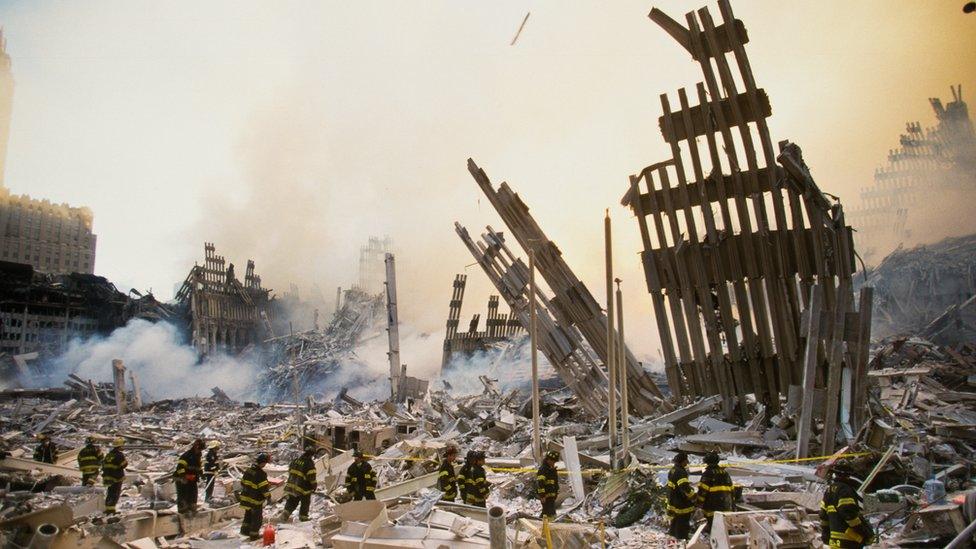
The search is underway for those who were behind these evil acts. We will make no distinction between the terrorists who committed these acts and those who harbour them.
al-Qaeda
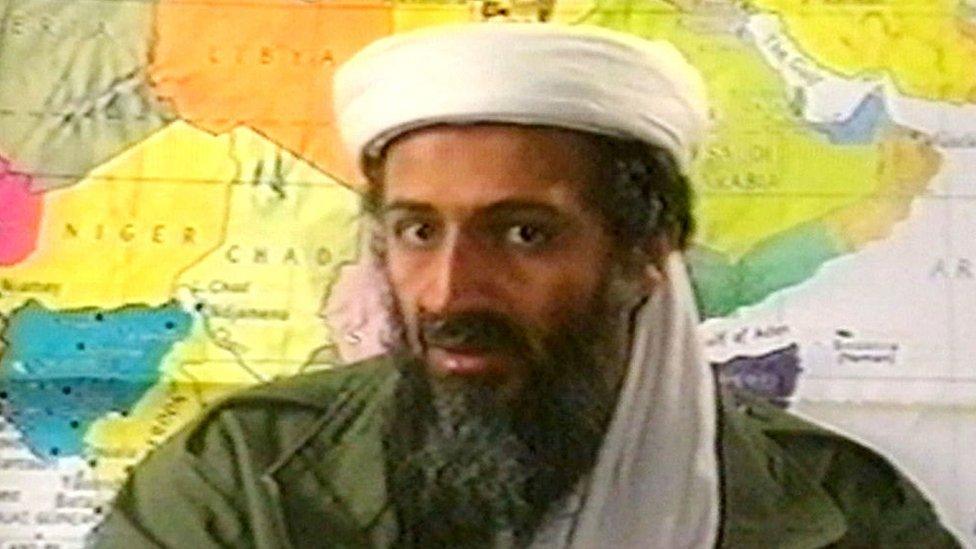
The group responsible for 9/11 al-Qaeda and its leader Osama bin Laden were operating in Afghanistan
On the day of the attacks, the then US president, George W. Bush addressed the country, part of his speech said:
"Today, our fellow citizens, our way of life, our very freedom came under attack in a series of deliberate and deadly terrorist acts.
"Our military is powerful, and it's prepared.
"The search is underway for those who were behind these evil acts. We will make no distinction between the terrorists who committed these acts and those who harbour them."
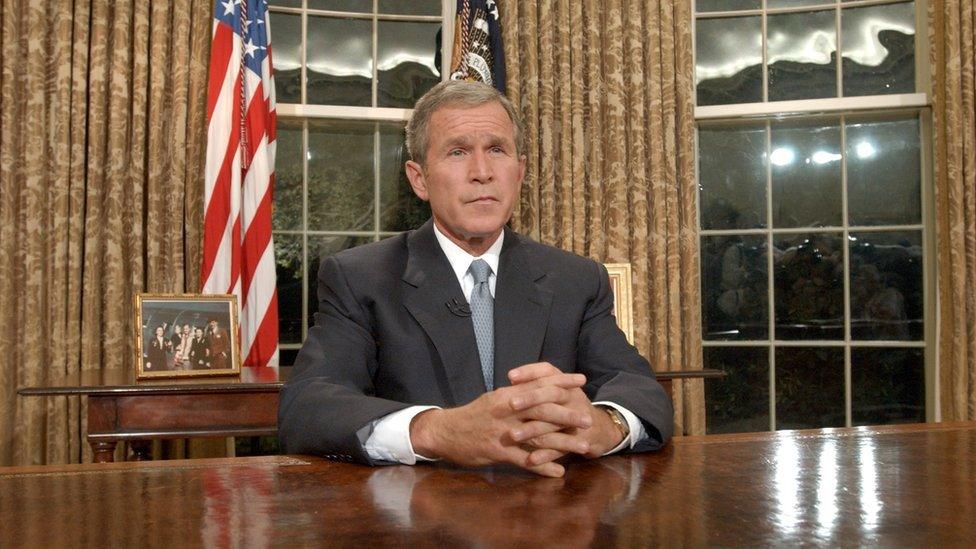
Our military is powerful, and it's prepared.
The group responsible for the September 11 attacks was identified as al-Qaeda, an Islamist extremist group who blame America for many of the world's problems.
Al-Qaeda have extreme beliefs which they used to justify their violent actions.
Twenty years ago al-Qaeda and its leader Osama bin Laden were operating out of Afghanistan.
"Our enemy is Osama bin Laden and the al-Qaeda network, who were responsible for the events of 11 September," said Tony Blair, the UK prime minister at the time.
"Bin Laden and al-Qaeda were able to commit these atrocities because of their close alliance with the Taliban regime in Afghanistan."
Within ten days of the attacks, President Bush declared a 'War on Terror' and said that defeating terrorism was now 'the world's fight'.
Invasion of Afghanistan
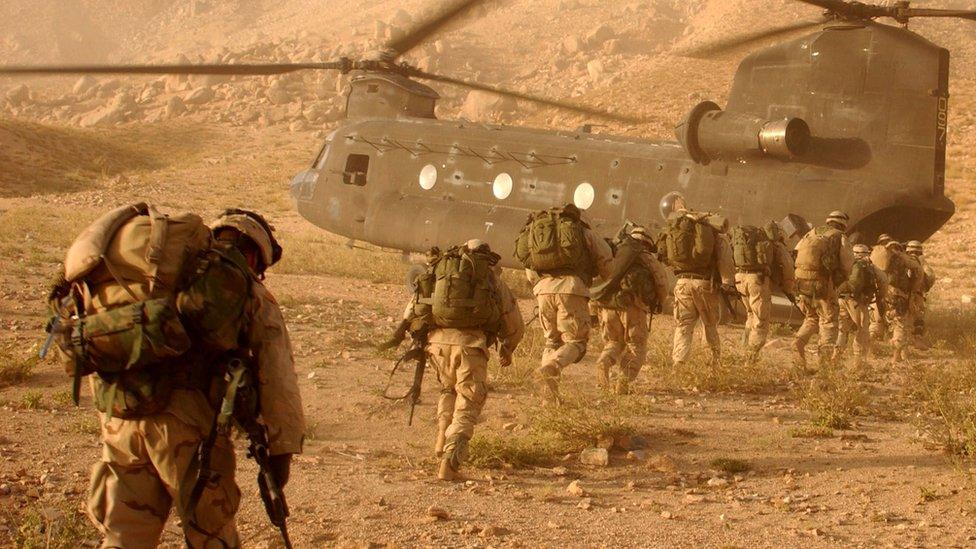
Osama bin Laden and other al-Qaeda leaders had been based in Afghanistan since the 1990s and had training camps there.
In 2001, the Taliban was in charge of Afghanistan and allowed al-Qaeda to operate in the country.
After September 11, the American government told the Taliban that they must hand over the leaders of al-Qaeda, who were responsible for the 9/11 attacks.
When the Taliban refused, a military conflict looked like the only course of action.
A month after 9/11, the invasion of Afghanistan began with American air-strikes in the country.
After two months of fighting, America, Britain and other countries, known together as a coalition, had removed the Taliban from power. Al-Qaeda retreated from Afghanistan and Osama bin Laden escaped, fleeing to Pakistan.
What happened after the Taliban were removed from power?
At the end of 2001 a new Afghan government was formed and to support it, something called the International Assistance Security Force was set up, led by the UK.
The UK and other countries said they were committed to democracy in Afghanistan, supporting plans to make it safe and a better place to live. These included efforts to improve education for girls in Afghanistan.
Despite no longer having control in the country, Taliban fighters continued to attack the US and UK forces who had remained there.
2003: The war in Iraq
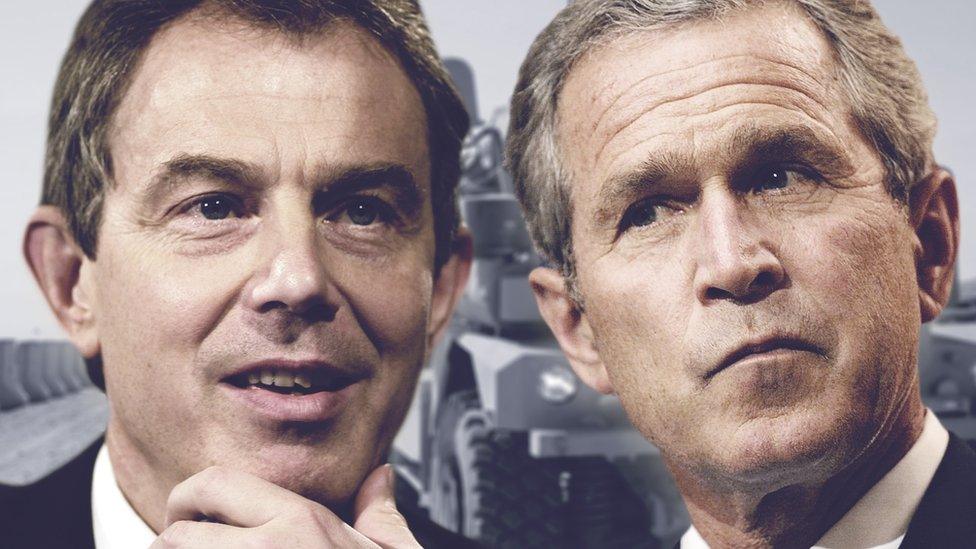
At the start of the new millennium, British prime minister Tony Blair and US President George Bush were good friends and allies, the UK supported the US in military campaigns in both Afghanistan and Iraq
By 2003, America's focus had turned towards a conflict in Iraq. American and British leaders wanted to remove Iraq's president Saddam Hussein from power. They claimed Saddam was developing dangerous weapons, called "weapons of mass destruction", which he was banned from having. They also accused him of being sympathetic to terrorists.
With attention elsewhere, President Bush declared that major combat operations in Afghanistan were at an end and it was now a period of "stability and stabilisation" in the country.
Efforts to make Afghanistan a safe place to live continued with the US, UK, Japan, Italy and others all working together.
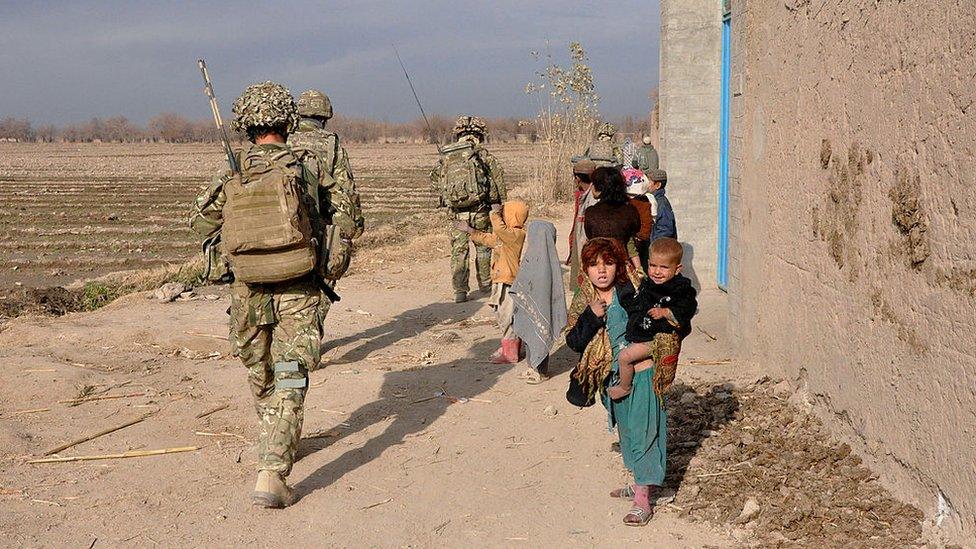
British soldiers pass by local children on route to a patrol base in Helmand province, Afghanistan
UK troops were then stationed in a part of Afghanistan called Helmand Province. The mission increasingly became more difficult as British soldiers continued to be attacked, injured or killed in the country.
Some coalition efforts to stop attacks also led to civilian casualties including children, making the presence of soldiers in Afghanistan unpopular.
Not only did many Afghans want troops to leave, but fewer people in the UK supported the conflict, partly because the British military had joined US forces in a war that was becoming increasingly controversial in Iraq.
No weapons of mass destruction were found in Iraq, and the claims about Saddam's links to terrorists remain disputed to this day.
What was the Iraq War?
Afghanistan 2009 - 2014
British armed forces left Iraq in 2009 and the UK's entire military effort was re-focussed on Afghanistan.
But the fight was becoming even more difficult - 2009 was the worst year for British losses, with 108 killed and 157 seriously injured in the country.
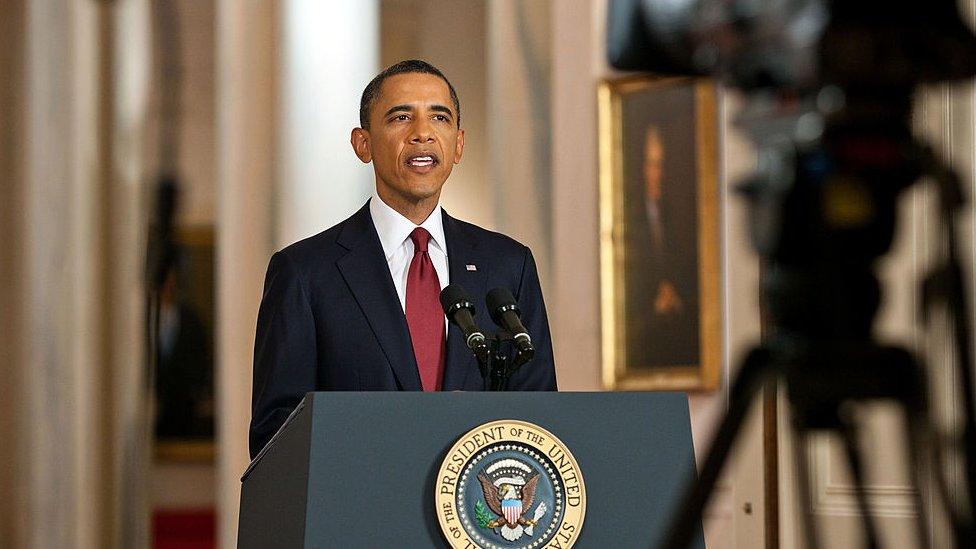
In 2011, US President Barack Obama announced that Osama bin Laden, the leader of al-Qaeda had been killed
In 2011, Osama bin Laden, the leader of al-Qaeda was killed in Pakistan by US special forces.
Osama bin Laden and the September 11 attacks had been the main reasons for troops going into Afghanistan in the first place.
So, in 2011, the then US president, Barack Obama announced that a withdrawal of troops from the country would begin. Similar announcements from other nations followed including the then UK prime minister, David Cameron who said all British combat missions would end in Afghanistan by 2014.
Once the plan to leave the country was put in place, the effort to train Afghanistan's own security forces was stepped up. But Taliban attacks continued.
Children of Kabul - A Newsround Special
A promise of peace with the Taliban
From 2015 as part of Nato, an organisation which brings together the armed forces of different countries, Britain sent about 1,000 troops to Afghanistan each year.
During this time the Taliban forces continued to grow in the country and many people believed that future peace in Afghanistan could only happen by negotiating a truce.
In 2020, America and the Taliban signed a peace agreement. It promised that American and Nato forces would leave the country and the Taliban promised to prevent al-Qaeda from operating in areas of Afghanistan under their control.
Leaving Afghanistan
Afghanistan: What led to the Taliban taking over?
In April 2021, US President Joe Biden announced that the remaining 2,500 US troops would be withdrawn from Afghanistan by the 20th anniversary of the September 11 attacks.
"I've concluded that it's time to end America's longest war; it's time for American troops to come home," Biden said.
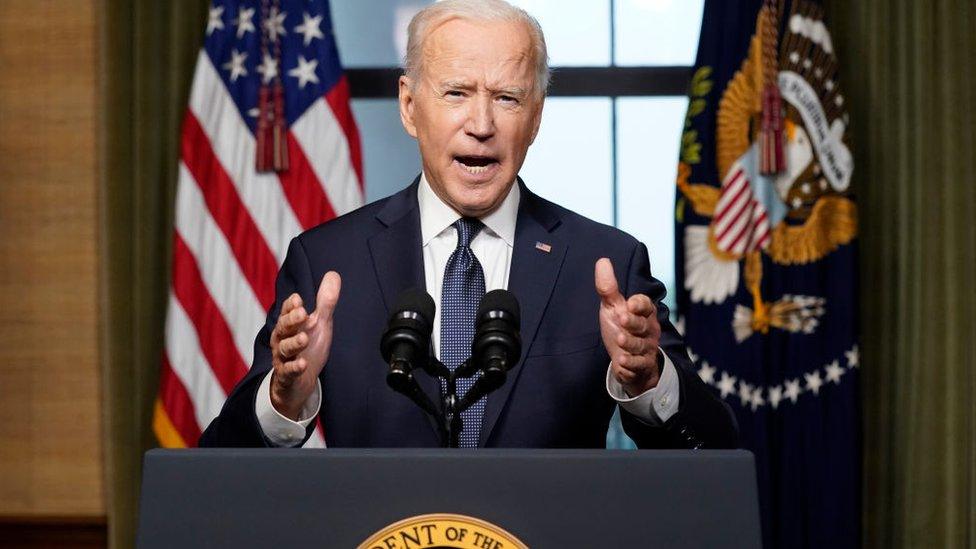
US President Joe Biden speaks from the Treaty Room in the White House about the withdrawal of troops from Afghanistan on April 14, 2021 in Washington, DC
By the middle of August 2021, almost all international forces had left Afghanistan.
But the Taliban then quickly captured and gained control of major Afghan cities.
With the Taliban back in control, some people have been critical of the US and UK's withdrawal from Afghanistan, with others questioning the way the war was fought for 20 years.
But the Prime Minister Boris Johnson has said that soldiers who served in Afghanistan over the last twenty years, had succeeded in protecting the UK from terrorists.
"Our purpose in Afghanistan was simple - to protect the United Kingdom from harm - and you succeeded in that central mission."
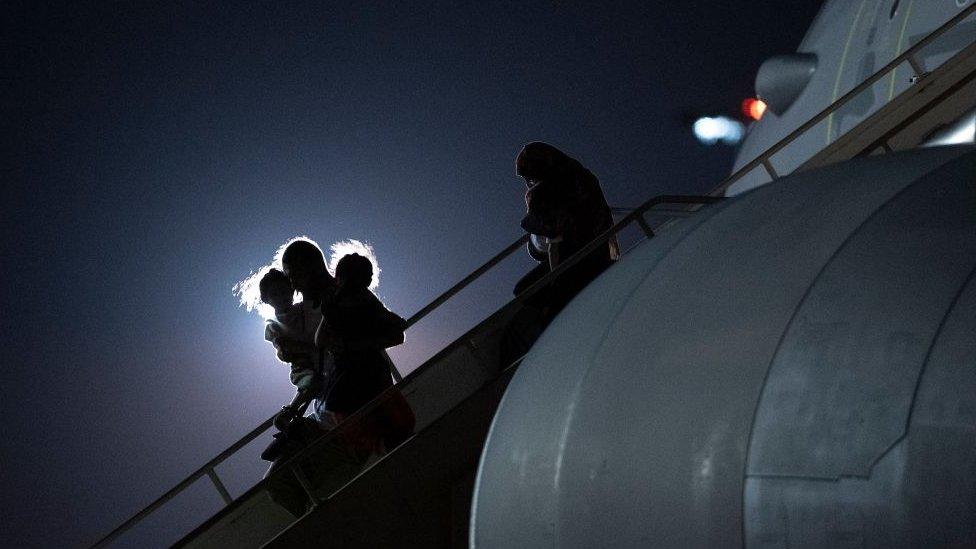
Families evacuated from Afghanistan leave a plane that has brought them to the UK
Although British and American forces were able to evacuate thousands of people from Afghanistan, many more, who wanted to escape the country, were unable to.
The British ambassador to Afghanistan, Sir Laurie Bristow, said: "We haven't forgotten the people who still need to leave [Afghanistan]. We'll continue to do everything we can to help them."
Now Britain, along with America and other countries, have said they will continue to check the situation in Afghanistan, where they will watch to see how the Taliban rule in the country and monitor whether Afghanistan becomes a base for terrorists again.
- Published17 August 2021
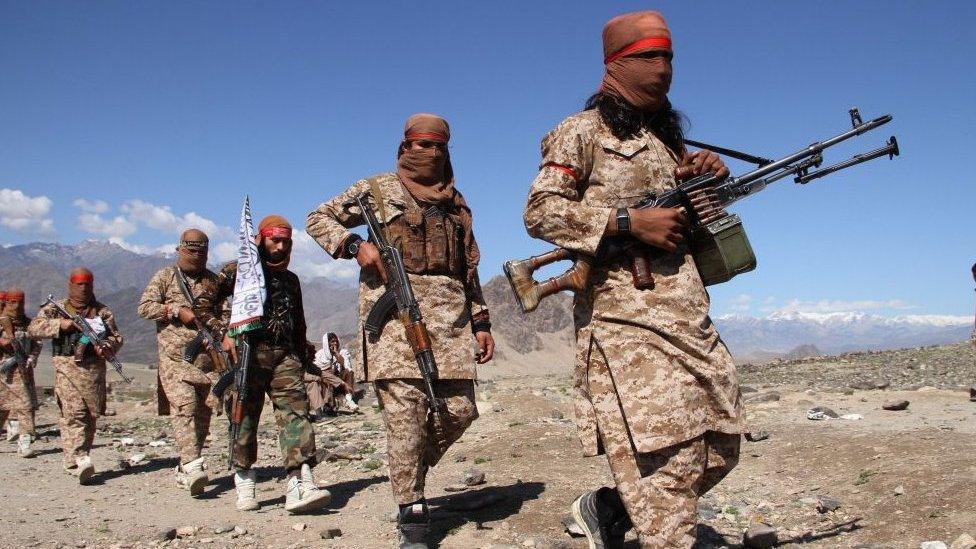
- Published11 September 2023

- Published31 August 2021
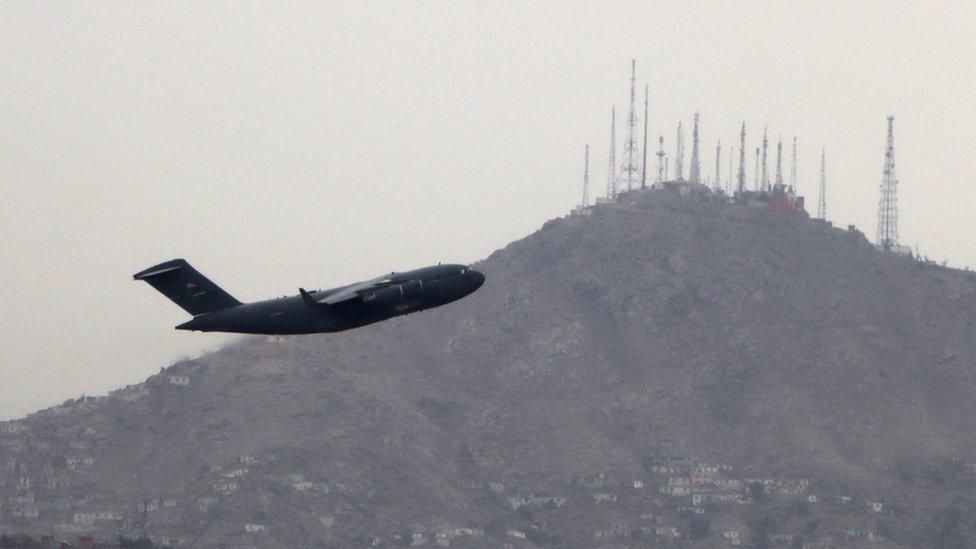
- Published29 August 2021
